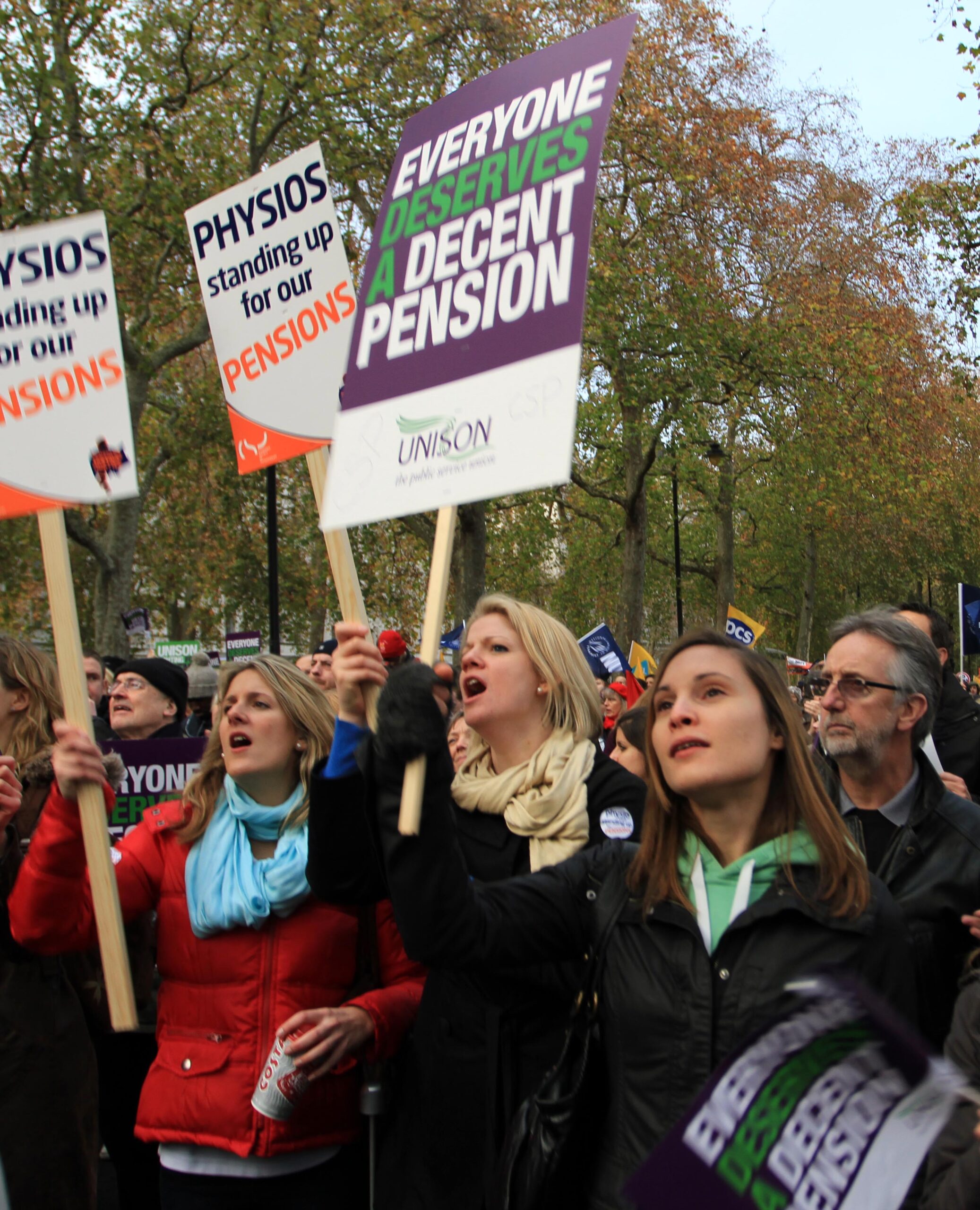Revealed: super-rich shareholders cause of pension deficits
Nationalise the banks and top corporations
London strike demo, 30 November, 2011 pensions dispute photo Senan (Click to enlarge: opens in new window)
Ross Saunders, Socialist Party Wales
Over half of Britain’s richest firms could immediately wipe out the deficit in their pension schemes if they were willing to prioritise former workers over investors.
If firms in the FTSE 100, the largest businesses on the London Stock Exchange, chose not to pay dividends to investors – a common practice – 53 of them could wipe out their pensions deficit within two years, according to accountancy firm JLT.
FTSE 100 companies paid out to investors five times what they spent on pension deficit reduction, report accountants LCP.
In other words, the pensions deficit crisis is not the fault of workers who are ‘inconveniently’ (for the bosses) living longer. It’s the fault of profit-hungry capitalists who leech funds out of companies that should go to the workers.
Pensions robbery is just another con trick in the repertoire of greedy capitalists, as tax-avoiding BHS boss Phillip Green’s shameful pension-gouging shows.
Workers at BHS have been stiffed to the tune of £350 million by the billionaire, who was knighted by Tony Blair’s government.
And steelmakers Tata, whose UK operations were part of the FTSE 100 as ‘Corus’, are currently trying to pressure workers into accepting big cuts to their pension scheme, with plant closures threatened if they don’t comply.
It’s true that some of the stock market is owned by pension funds. But UK pension funds own only 3% of UK share value, and overseas pension funds own under 6%. Trusts, corporations and individual capitalists, plus some small investors, own about 82%, based on 2014 Office for National Statistics data.
Financial services giant PwC estimates that, in total, UK companies have underfunded ‘defined benefit’ pension schemes by a staggering £710 billion.
That figure has been pumped up by low interest rates and other stimulus measures that first Labour and then Tory governments implemented, vainly trying to repair the economic chaos of crisis-ridden capitalism.
The money to reward workers with a poverty-free retirement exists. We should nationalise the FTSE 100, with compensation only on the basis of proven need, and put it into the hands of working class people, to democratically plan how wealth is spread out. Then we can guarantee the jobs and pensions we need.









